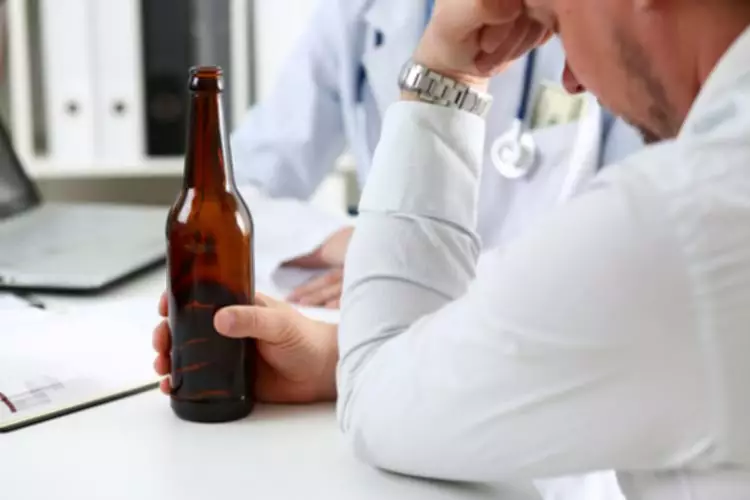
If you’re experiencing a blackout or brownout, you’re at higher risk for falling, injury and unwanted or unsafe sexual experiences. A person who is blacked out may also throw up while sleeping, which could lead to an increased risk of choking or suffocating. But sometimes, auditory or visual cues can help a person piece together memories of what happened during a blackout. These cues could come in the form of texts, pictures or conversations with people who were present while you were blacked out. The medical term for blackouts is called transient loss of consciousness (TLOC). Replacing alcohol with positive coping strategies empowers individuals to regain control over their mental health and wellbeing.

Blackouts vs. Passing Out
Often, veterans feel that they have to marijuana addiction rely on alcohol to cope with the invisible wounds of war. And among veterans, unhealthy habits, like frequent blackout drinking, can have profoundly negative effects across all facets of life. It may be a simple solution to slowing down the amount of alcohol you consume in one day.
- Many people who have blackouts do so after engaging in a behavior known as high-intensity drinking, which is defined as drinking at levels that are at least twice as high as the binge-drinking thresholds for women and men.
- A study highlights that motivational interviewing has been effective for 75% of participants, specifically for addiction treatment.
- Understanding these blackouts, their causes, and their effects on the brain and memory is crucial for anyone struggling with alcohol use.
- As the NewsHour explained last week, traumatic memories can form after a single, life-threatening event and stick for our entire lives.
PTSD Memory Loss: The Link Between Trauma and Blackouts
You may not realize you are around a trigger; your brain just reacts to it. Being aware of potential signs of intoxication can also be helpful in understanding your limitations. A blackout ends when your body has absorbed the alcohol you consumed and your brain is able to make memories again. Excessive alcohol use isn’t the only thing that can cause blackouts or brownouts.
Alternatives to Alcohol for Managing PTSD Symptoms

While drinking a lot increases the risk for a blackout, other factors can contribute. Drinking on an empty stomach and drinking large amounts in a short time, such as binge drinking, can also cause a person’s blood alcohol concentration to rise quickly resulting in memory loss. PTSD can affect anyone who has experienced or witnessed a traumatic event. While combat veterans are at high risk, survivors of accidents, natural disasters, and sexual assault are also at risk for developing PTSD. Many people with post-traumatic stress disorder (PTSD) experience blackouts.
Gain insights into understanding and coping with withdrawal symptoms effectively. From recognizing the nuances of withdrawal to addressing its duration and severity, equip yourself with vital information for a smoother path towards healing. While you are still in control of your actions during a blackout, your ability to make decisions can be greatly impaired. After a night of blackout drinking, people often find that they said or did things that they would not normally say or do. Alcohol-related blackouts can be dangerous and increase a person’s risk of injury and other harms.
Seeking Help: Finding Support for PTSD and Alcohol Use at Agape Treatment
Our daily research-backed readings teach you the neuroscience of alcohol, and our in-app Toolkit provides the resources and activities you need to navigate each challenge. PTSD can be a disabling condition, and, when combined with alcohol, it generally becomes worse. Whether you’re looking for assistance with PTSD symptoms, anxiety, alcohol-related issues, or simply seeking a path to better wellness, Reframe is a great place to start.

Common drugs prescribed to treat PTSD include antidepressants, anxiolytics, and antipsychotics. Evidence suggests particularly strong benefits from sertraline (Zoloft), paroxetine (Paxil), and ptsd alcohol blackout venlafaxine (Effexor). Other mental or physical health problems often accompany PTSD and drinking problems. Department of Veterans Affairs, up to half of adults with both PTSD and drinking problems also have one or more of the following serious problems. The symptoms are not a result of the effects of a substance such as medication, alcohol, or another medical condition.
Курсы Java Developer Днепр Обучение программированию Java для начинающих
Often overlooked, post-traumatic stress disorder (PTSD) tends to be a major cause of alcoholism. Individuals who develop PTSD are more likely to develop alcohol dependence. Studies have also found that the severity of PTSD symptoms can significantly influence the extent of alcohol use. This illustrates a direct relationship between trauma’s impact and substance use as a form of self-medication. And oftentimes, when people run into legal trouble while drinking, they do not remember what they did and have to be informed the next day. Complex trauma typically arises from prolonged and repetitive exposure to traumatic events.

For example, people with PTSD have more problems with alcohol both before and after they develop PTSD. The evidence suggests that there is no distinct pattern of development for the two disorders. Some evidence shows that veterans who have experienced PTSD tend to develop AUD, perhaps reflecting the self-medication hypothesis. However, other research shows that people with AUD or SUD have an increased likelihood of being exposed to traumatic situations, and they have an increased likelihood of developing PTSD. It is possible that these two bodies of evidence represent two separate relationships between PTSD and AUD. Additionally, the conditional nature of the disorders, based on the exposure to an event or a substance, makes this a complex relationship for analysis, interpretation, and intervention for treatment.
